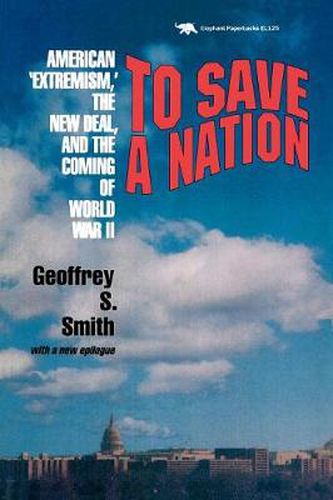Readings Newsletter
Become a Readings Member to make your shopping experience even easier.
Sign in or sign up for free!
You’re not far away from qualifying for FREE standard shipping within Australia
You’ve qualified for FREE standard shipping within Australia
The cart is loading…






In this brilliant study of the relationship between domestic politics and the shaping of foreign policy, Geoffrey Smith shows how fascists, anti-Semites, and other right-wing extremists became unwitting allies of the Roosevelt administration in the debate over American entry into World War II. Respectable isolationists and others who opposed American involvement in the European war found themselves discredited by the likes of Father Coughlin, the American Silver Shirts, and the German-American Bund-for the disgust generated by the totalitarian thuggery of these groups and individuals helped to convince Americans that indeed they had a stake in the war abroad. FDR used this incontrovertible evidence to frighten a nation into war, while those who opposed war could not free themselves from the stigma of association with extremists. In a superb new epilogue, Mr. Smith brings up to date his discussion of American extremism, explaining how the nation’s attitudes have taken a 180-degree turn in the years since World War II. Persuasively argued … a very well-written book. -Journal of American History.
$9.00 standard shipping within Australia
FREE standard shipping within Australia for orders over $100.00
Express & International shipping calculated at checkout
Stock availability can be subject to change without notice. We recommend calling the shop or contacting our online team to check availability of low stock items. Please see our Shopping Online page for more details.
In this brilliant study of the relationship between domestic politics and the shaping of foreign policy, Geoffrey Smith shows how fascists, anti-Semites, and other right-wing extremists became unwitting allies of the Roosevelt administration in the debate over American entry into World War II. Respectable isolationists and others who opposed American involvement in the European war found themselves discredited by the likes of Father Coughlin, the American Silver Shirts, and the German-American Bund-for the disgust generated by the totalitarian thuggery of these groups and individuals helped to convince Americans that indeed they had a stake in the war abroad. FDR used this incontrovertible evidence to frighten a nation into war, while those who opposed war could not free themselves from the stigma of association with extremists. In a superb new epilogue, Mr. Smith brings up to date his discussion of American extremism, explaining how the nation’s attitudes have taken a 180-degree turn in the years since World War II. Persuasively argued … a very well-written book. -Journal of American History.